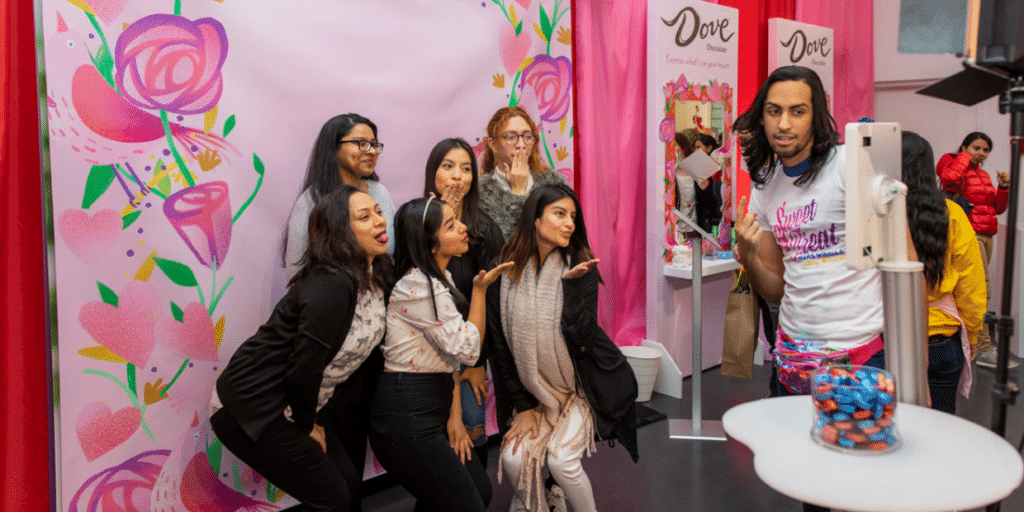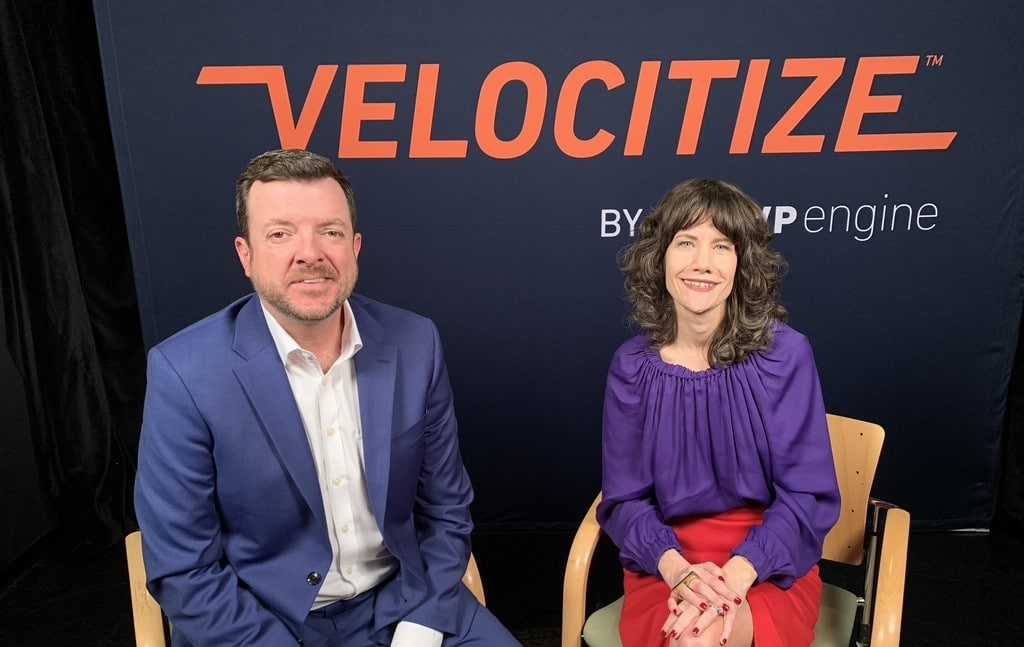A lot of what I see [regarding] personalization is really focused on technology: what’s going to enable us to reach that holy grail of one-on-one. To me personalization isn’t as much about technology as it is about information.
Leigh George, PhD is the Founder and CEO of Freedom, a strategic branding and marketing “un-agency” helping marketers innovate and tackle important challenges.
Prior to founding Freedom, George led branding and content marketing at a health non-profit, was VP at Ogilvy, and led branding and digital strategy teams at several digital agencies in the Washington, D.C. area.
In this episode of Velocitize Talks, George shares her thoughts on brand personalization, recreational retail, and customer-centered marketing.
Deeper meaning (1:30)
To me personalization isn’t as much about technology as it is about information and really understanding people’s behaviors, their beliefs, their needs, their wants, and then crafting experiences to help satisfy that.
George defines brand personalization as a deeper understanding of customers; how to recognize their needs and how to meet those needs. She believes customers are the disrupters. If you don’t understand their motivations and behaviors, there are plenty of other competitors who will. A Havas Meaningful Brands Report found that consumers would not even care if 77% of the brands they use vanished. Clearly it’s more important than ever for a brand to mean something to customers.
Giving retail space (2:35)
This idea of recreational retail is the idea of brands giving their customers an experience that is one of a kind, that really activates their desire to go to that place because they can’t get that experience anywhere else.

In a post on LinkedIn, George writes, “Why are some retailers struggling to stay alive and others thriving? It’s not retail itself that’s dying. It’s an out of date concept of retail that’s on life support. Brands who don’t understand the difference will see their customers abandoning them for brands that do.”
Companies are thinking about how to create a new kind of experience in a retail space to makes it more than just transactions. One way brands are doing this is through pop-ups. These entice customers to visit a retail space under strict time limits. This generates a good deal of FOMO (fear of missing out), as well as a perfect event for Instagram props.
Brand “besties” (4:21)
Oftentimes you’ll see this happening between a startup or new technology brand and a more traditional brand. It’s a marriage of convenience, where each is giving the other something they don’t have. The more traditional brand can offer the up-and-coming brand exposure to a wider audience and the younger brand gives the older brand this sheen of innovation and hipness.

Brand partnerships are an excellent way for brands to gain exposure to different audiences and expand their customer base. For example, this past “Galentine’s Day,” Mars candy and dating app Bumble created a pop-up specifically for women featuring mentorship exercises focused on brand personalization and networking in a fun and festive space.
The meaning behind the brand (6:39)
Purpose is much broader than just this narrow social good. It’s about the core reason you exist, which obviously cannot be because you want to make as much money as possible—that’s not purpose.

George believes that “to be meaningful, brands can’t be all things to all people. You need a purpose, a reason beyond revenue for your business.” A brand’s purpose is the core belief of what your company stands for and its inclusiveness.
One example of bringing purpose and passion together is Nike’s partnership with Colin Kaepernick and the USA Women’s Soccer Team. Nike regularly aligns their brand with causes like social justice and equal pay, and the campaigns feel authentic and natural. They also reinforce Nike’s purpose: the fundamental belief in human potential.
Center stage (13:11)
What I’m really interested in is the pressure that’s been put on brands now to be more human because of how customers are just so much more in control.

The most memorable brands don’t just make products; they create experiences that a customer can’t find anywhere else.
For more information on Freedom, check out their website. To stay up to date with George, follow her on LinkedIn.





Join the conversation